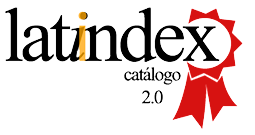Design of a multiple choice test development course using generative artificial intelligence
innovative educational accessibility
Keywords:
pedagogical practices, universal design for Learning, Disability, Inclusive educationAbstract
The objective of this study was to analyze the implementation of Universal Design for Learning (UDL) and pedagogical practices at the Special Vocational School in the educational region of Panama. The institution serves students with disabilities at pre middle school, academic middle school, and technical levels in the educational regions of central and eastern Panama. The research employed a descriptive qualitative approach, using interviews and document review as data collection methods, followed by deductive analysis to generate categories. The sample consisted of 18 voluntary teachers, three principals/supervisors, and 17 documents of instructional sequences. It was identified that teachers have knowledge of UDL, but the principles of engagement, representation, action, and expression are applied superficially and in isolation. This underscores the need to prioritize ongoing training and support actions. The study aims to disseminate its findings to the authorities of the Panamanian Institute of Special Habilitation (IPHE), responsible for the education of students with disabilities in public schools nationwide. It proposes the implementation of technical training specifically on UDL to update specialized teachers at this institution. This approach aims to enhance educational quality and the effective inclusion of students with disabilities in the Panamanian educational system. These findings highlight the importance of not only having theoretical knowledge but also implementing inclusive and adaptive pedagogical practices that respond to the individual needs of students with disabilities, thereby promoting a more equitable and accessible educational environment.
Downloads
References
Ayala, L. (2013). Experiencia docente en ingeniería mediante modelos físicos a escala
reducida: una contribución al desarrollo regional. En Prácticas Docentes Universi-
tarias: reflexiones desde sus escenarios.
Bonilla, E. (2000). Más allá del dilema de los métodos: la investigación en ciencias
sociales. Norma.
CAST. (2011). Centre for Assistive Special Technologies. Educadua, 1(1), 57.
CAST. (2014). Centre for Assistive Special Technologies. Educadua, 1(1), 60
CAST. (2018). Centre for Assistive Special Technologies. Educadua, 1(1), 64
CAST (2018). Universal Design for Learning Guidelines version 2.2.
Cisneros, C. (Ed.). (s.f.). Software Qda Minerlite.
https://www.provalisresearch.com/Documents/QDAMiner32ES.pdf.
Díaz-Barriga, F. (2010). Los profesores ante las innovaciones curriculares. Revista
Iberoamericana de Educación, 1(1), 37-40.
Hernández Sampieri, R., Fernández Collado, C., Baptista Lucio, M.P. (2014). Metodología de
la investigación (6° ed.). México: McGraw Hill IPHE. (Noviembre de 2022).
Instituto Panameño de Habilitación Especial. https://www.iphe.gob.pa/Memoria-2019.
IPHE. (Noviembre de 2022). Instituto Panameño de Habilitación Especial.
https://www.iphe.gob.pa/Memoria-2022
Meyer, A., Gordon, D. (2014). Universal design for learning: Theory and Practice.
Wakefield, MA: CAST Professional Publishing
Ocando, H. (2023). La supervisión educativa como elemento clave para alcanzar la
calidad educativa en las escuelas públicas. Red de Revistas Científicas de América
Latina, el Caribe, España y Portugal, 23(3), 52-53. Doi: ISSN: 1315-8856.
ODS. (12 de junio de 2023). Objetivos de Desarrollo Sostenible. https://ods.cr/
Pastor, C. A. (5 de Mayo de 2018). Diseño Universal para el Aprendizaje. Bogotá,
Colombia: https://www.youtube.com/watch?v=9i0YUupzDkg.
Revisión de la Declaración de Helsinki abierta a comentarios. 20 de junio de 2008 [en línea].
[Fecha de consulta: 20 de mayo de 2023].
http://www.wma.net/es/40news/20a rchives/2008/2008_08/index.html.
Rodríguez, R (2023). Diseño Universal para el Aprendizaje y Prácticas Pedagógicas en
la Escuela Vocacional Especial. Tesis para optar por la Maestría en Medición, Evalua-
ción e Investigación Educativa. Universidad del Valle de Guatemala.
https://repositorio.uvg.edu.gt
Shulman, L. S. (1987). Knowledge and teaching: Foundations of the new reform. Harvard
Educational Review, 57(1), 1-22.
Takacs, S., Zhang, J (2020). Universal Design for Learning: A Practical Guide. Centre for
Teaching, Learning, and Innovation. Justice Institute of British Columbia
Tobón, S., Pimienta, J., & F., G. (2010). “Secuencias didácticas: Aprendizaje y Evaluación
de Competencias. México: Pearson- Prentice Hall.
Downloads
Published
How to Cite
Issue
Section
License

This work is licensed under a Creative Commons Attribution-NonCommercial-ShareAlike 4.0 International License.







